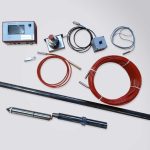The Ultimate Electric Circuits Handbook: The Blobz Guide To Mastering Circuits For All!
The Blobz Guide to Electric Circuits
Introduction
Hello Smart Readers,
1 Picture Gallery: The Ultimate Electric Circuits Handbook: The Blobz Guide To Mastering Circuits For All!
Welcome to The Blobz Guide to Electric Circuits! In this comprehensive guide, we will delve into the world of electric circuits and explore the fundamental concepts that drive modern technology. Whether you’re a student, an enthusiast, or simply curious about how electricity flows, this guide is for you.

Image Source: pinimg.com
Electric circuits are the backbone of our technological advancements. Understanding how they work is vital in today’s increasingly electrified world. So, let’s embark on this educational journey together and uncover the mysteries behind electric circuits.
Throughout this guide, you’ll find detailed explanations, engaging visuals, and practical examples to help you grasp the concepts effectively. So, without further ado, let’s dive into the fascinating world of electric circuits!
But first, let’s take a look at what electric circuits are and why they are essential in our lives.
What Are Electric Circuits?
Electric circuits are pathways that allow electric current to flow from one point to another. They consist of various components, such as batteries, resistors, capacitors, and conductors, which work together to facilitate the flow of electricity. These circuits can be simple, like a flashlight, or complex, such as those found in computers or power grids.
Electric circuits are governed by the principles of Ohm’s Law, which states that the current flowing through a conductor is directly proportional to the voltage applied across it and inversely proportional to the resistance of the conductor.
Understanding electric circuits is crucial as they form the basis of numerous electrical devices and systems we rely on daily. From smartphones to household appliances, electric circuits power the technology that shapes our lives.
Now that we know what electric circuits are, let’s explore who can benefit from The Blobz Guide to Electric Circuits.
Who Can Benefit from The Blobz Guide to Electric Circuits?
The Blobz Guide to Electric Circuits is designed to cater to a wide range of audiences, including students, educators, hobbyists, and anyone interested in learning about electric circuits. Whether you’re a beginner or have some prior knowledge, this guide offers valuable insights and explanations.
Students studying physics, electrical engineering, or related fields can use this guide as a supplementary resource to enhance their understanding of electric circuits. Educators can incorporate the Blobz Guide into their curriculum to make complex concepts more accessible and engaging for students.
Hobbyists and enthusiasts can explore this guide to expand their knowledge and gain a deeper understanding of how electrical systems work. The Blobz Guide aims to empower readers with the knowledge needed to build and troubleshoot their circuits.
Now that we know who can benefit from this guide, let’s discover when the world of electric circuits emerged.
When Did Electric Circuits Emerge?
The concept of electric circuits dates back to the late 18th century when Luigi Galvani and Alessandro Volta conducted groundbreaking experiments on electricity and its effects on living organisms. Volta’s invention of the first battery, the Voltaic Pile, revolutionized the field of electricity and paved the way for further advancements.
Throughout the 19th and 20th centuries, scientists and engineers made significant discoveries and inventions, shaping the field of electric circuits. The development of alternating current (AC) and direct current (DC) systems, the invention of the transistor, and the emergence of integrated circuits marked key milestones in the evolution of electric circuits.
Today, electric circuits are an integral part of our daily lives, powering everything from our homes to transportation systems and advanced technologies.
Now that we have an overview of the historical context, let’s explore where electric circuits can be found.
Where Can Electric Circuits Be Found?
Electric circuits can be found in various environments and applications. They are present in residential buildings, powering lighting systems, household appliances, and electrical outlets. Commercial buildings, factories, and offices rely on electric circuits to provide electricity for a wide range of operations and equipment.
Transportation systems, such as cars, trains, and airplanes, utilize electric circuits for propulsion, control systems, and entertainment systems. Even our personal electronic devices, such as smartphones, laptops, and tablets, heavily depend on electric circuits.
Furthermore, electric circuits are essential components of renewable energy systems, such as solar panels and wind turbines, contributing to sustainable energy generation.
Now that we know where electric circuits can be found, let’s delve into why understanding them is crucial.
Why Is Understanding Electric Circuits Crucial?
Understanding electric circuits is crucial for several reasons:
1. Safety: Knowing how electric circuits operate allows individuals to handle electricity safely, preventing accidents and hazards.
2. Troubleshooting: Understanding electric circuits enables individuals to diagnose and fix electrical issues in various devices and systems.
3. Innovation: With a solid understanding of electric circuits, individuals can innovate and create new technological solutions.
4. Career Opportunities: Proficiency in electric circuits opens doors to diverse career opportunities in fields such as electrical engineering, electronics, and renewable energy.
Now that we’ve explored the importance of understanding electric circuits, let’s uncover how The Blobz Guide can help you in your journey.
How Can The Blobz Guide Help You?
The Blobz Guide to Electric Circuits offers a comprehensive and engaging learning experience. It presents concepts in a clear and accessible manner, using interactive visuals, practical examples, and step-by-step explanations.
Whether you’re a student, educator, or enthusiast, The Blobz Guide provides valuable resources to enhance your understanding of electric circuits. From basic concepts to advanced topics, this guide covers a wide range of material.
By following The Blobz Guide, you’ll gain the knowledge and skills needed to comprehend and work with electric circuits effectively. You’ll be able to design and build your circuits, troubleshoot electrical issues, and contribute to the advancement of technology.
Now that we know how The Blobz Guide can benefit you, let’s move on to explore the advantages and disadvantages of electric circuits.
Advantages and Disadvantages of Electric Circuits
Electric circuits offer numerous advantages:
1. Efficiency: Electric circuits allow for efficient transmission and control of electrical power.
2. Reliability: When designed and maintained correctly, electric circuits provide reliable power supply.
3. Versatility: Electric circuits can be customized and adapted to various applications and environments.
4. Scalability: Electric circuits can be scaled up or down to meet different power demands.
However, electric circuits also have their disadvantages:
1. Complexity: Understanding and designing complex electric circuits can be challenging.
2. Safety Risks: Mishandling electric circuits can lead to electrical shocks or fires.
3. Environmental Impact: The production and disposal of electronics and electrical components contribute to environmental pollution.
4. Cost: Building and maintaining complex electric circuits can be expensive.
Now that we’ve explored the pros and cons, let’s address some frequently asked questions about electric circuits.
Frequently Asked Questions (FAQs)
1. Are electric circuits only used in high-tech devices?
No, electric circuits are used in a wide range of devices and systems, from simple household appliances to complex industrial machinery.
2. Can I build my electric circuit at home?
Yes, you can build simple electric circuits at home using readily available components like batteries, wires, and light bulbs.
3. How can I troubleshoot electrical issues in my home?
Start by checking the power source, fuses, and circuit breakers. If the issue persists, it’s advisable to consult a professional electrician.
4. Are there any safety precautions when working with electric circuits?
Yes, it’s crucial to follow safety guidelines, such as wearing protective gear, turning off power sources before working, and avoiding water contact with electrical components.
5. Can electric circuits generate renewable energy?
Yes, electric circuits are integral to renewable energy systems like solar panels and wind turbines, enabling the generation and distribution of clean energy.
Conclusion
In conclusion, The Blobz Guide to Electric Circuits provides a comprehensive resource for understanding the fundamentals of electric circuits. By exploring the what, who, when, where, why, and how of electric circuits, readers can gain a solid foundation in this field.
Electric circuits are essential components of our modern lives, powering the technology we rely on daily. Understanding electric circuits not only enhances our safety but also empowers us to innovate and contribute to technological advancements.
So, whether you’re a student, an educator, or simply curious about how things work, The Blobz Guide to Electric Circuits is here to enlighten and inspire you. Start your journey now and unlock the world of electric circuits!
Final Remarks
It is important to note that while The Blobz Guide to Electric Circuits aims to provide accurate and insightful information, it is always advisable to consult professionals or experts in the field for specific technical advice or assistance. The guide serves as a starting point and reference but should not substitute professional expertise.
Always prioritize safety when working with electricity and electric circuits. If you encounter any electrical issues or are unsure about any aspect, seek professional help to ensure your well-being and the proper functioning of electrical systems.
This post topic: Electric



